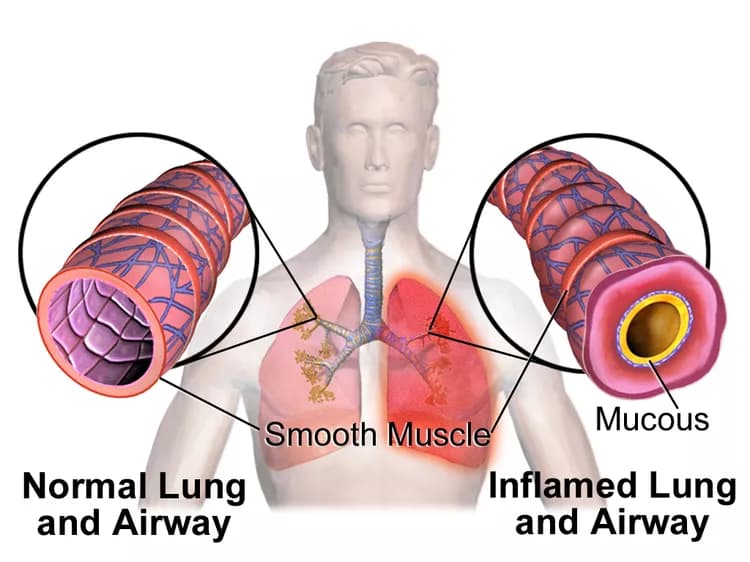
Just 30 Minutes A Day: Regular Exercise Relieves Asthma Symptoms
Millions of people suffer from asthma. Many report having poor control of their symptoms. Fortunately, new research shows there is a simple antidote: 30 minutes of exercise a day, year-round.
In a study recently published in BMJ Open Respiratory Research, experts from Concordia University, the Hôpital du Sacré-Coeur de Montréal and several other institutions* analyzed the exercise habits of 643 participants who had been diagnosed with asthma.
Results were overwhelmingly clear: those who engaged in optimal levels of physical activity on a regular basis were nearly two-and-a-half times more likely to have good control of their symptoms, compared with those who did no exercise.
The workout doesn't have to be strenuous. "We're not talking about running marathons here," says Simon Bacon, the study's lead author and a professor in the Department of Exercise Science at Concordia. "Just 30 minutes a day of walking, riding a bike, doing yoga -- anything active, really -- can result in significant reduction of asthma symptoms."
Traditionally, people with the condition have been discouraged from exercising because of a belief that it triggers shortness of breath and attacks. Bacon explains that simple precautionary measures can be taken to avoid the discomforts that can be caused by physical activity.
"The issue of exercise-induced bronchospasm is real -- but if you use your releaver medication, blue puffer, before you exercise, and then take the time to cool down afterwards, you should be okay," he says. "Even if you have asthma, there's no good reason not to get out there and exercise."
That's a message Bacon hopes resonates. Within his sample group of 643 individuals, a whopping 245 reported doing no physical activity. Only 100 said they engaged in the optimal 30 minutes a day.
"Those numbers reflect the population in general," says Bacon, who is also director of the Centre de réadaptation Jean-Jacques-Gauthier at Hopital du Sacré-Coeur. Forty per cent of people don't exercise at all, he says.
"We need to keep in mind that doing something is better than nothing, and doing more is better than less. Even the smallest amount of activity is beneficial."
It's something to keep in mind during winter months, when fitness levels tend to drop along with the temperature, and cold air provides another trigger for asthma symptoms.
"Our study shows that those who were able to engage in physical activity on a regular basis year-round benefit most," says Bacon. If necessary, he suggests finding an indoor place to move, whether it's the gym, a staircase or a shopping mall.
"It's all about being creative and finding environments where the cold doesn't become an issue."
Could a prescription for exercise be the result of this study Bacon is hopeful. "It would be great to see physicians recommending physical activity to patients with asthma, alongside traditional pharmacological treatments," he says.
Partners in research: Funding support for this study was provided by grants from the Social Sciences and Humanities Research Council, Fonds de recherche du Quebec - Sante, the Canadian Institutes of Health Research and the Michel Auger Foundation of Hopital du Sacre-Coeur de Montreal.
The above post is a redistributed news release provided by Concordia University. Note: Materials may be edited for content and length.
Disclaimer: DoveMed is not responsible for the adapted accuracy of news releases posted to DoveMed by contributing universities and institutions.
Primary Resource:
Bacon, S. L., Lemiere, C., Moullec, G., Ninot, G., Pepin, V., & Lavoie, K. L. (2015). Association between patterns of leisure time physical activity and asthma control in adult patients. BMJ open respiratory research, 2(1), e000083.
Related Articles
Test Your Knowledge
Asked by users
Related Centers
Related Specialties
Related Physicians
Related Procedures
Related Resources
Join DoveHubs
and connect with fellow professionals

0 Comments
Please log in to post a comment.